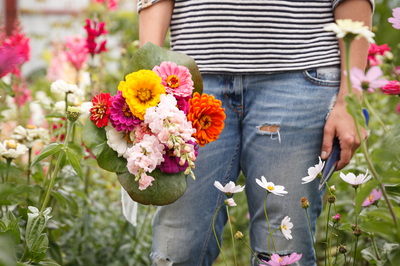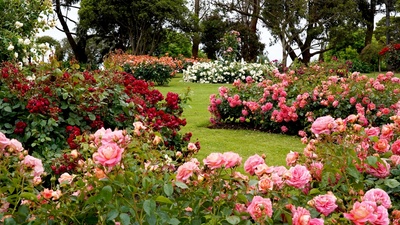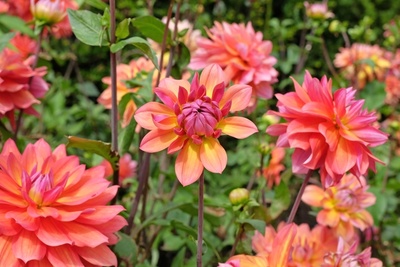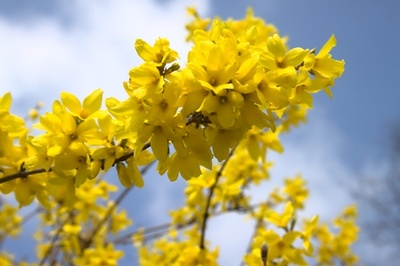
As the days start getting shorter and the leaves blaze red and gold, enjoy the last of the good weather as you wind down the garden for winter. There’s lots to be harvested and plenty of planning to do for next spring. Here are our top 15 gardening tips for September.
Top 15 garden tips for September
-
Harvest French and runner beans frequently to keep them producing more. Once the plants have finished, cut them down at ground level, so that the roots can release their stored nitrogen back into the soil.
-
Pinch out the tips of outdoor-grown cordon tomatoes once they have 4 trusses of fruit, to focus the plants’ energies on ripening the fruit.
-
In the orchard, pick blackberries and autumn raspberries. Cut back the fruited canes of summer raspberries down to ground level and tie in this year’s strong new canes to supports for next year’s crop. Harvest plums, pears and apples.
-
Harvest the last of the maincrop potatoes. Cut off the foliage three weeks before you harvest, to reduce the risk of blight spores infecting your spuds. Leave the potatoes to dry for a few hours before storing in paper bags or hessian sacks.
-
Net leafy brassicas like kale to protect them from birds.
-
It’s not too late to sow and plant vegetables. Sow spinach and spring cabbage for next year, and have horticultural fleece ready to cover the ground from October to protect the seedlings from frost. Plant onion and garlic sets now for early harvests next year. Choose onions suitable for autumn sowings, like ‘Troy’ or ‘Radar’.
-
Pot up strawberry runners to make new plants, or cut them off to conserve the plants’ energy.
-
Sow hardy annual seeds, including nigella, poppies, cornflower and scabious, for next year’s summer display.
-
If you’ve been growing biennials like wallflowers (Erysimum) from seed, plant them out now so that they can settle in before winter.
-
Plant up containers with violas, heucheras and heather for autumn and winter interest, and pop in a layer of daffodil bulbs first for spring flowers.
-
Now’s a good time to plant new perennials and shrubs, while the soil is still warm. It’s also a good time to move existing shrubs and trees.
-
Lift and divide overgrown clumps of perennials like crocosmia.
-
Keep deadheading dahlias, roses and penstemons, and cut back geraniums and other perennials as they fade.
-
Raise the blades on your lawnmower, and mow less often. Scarify and aerate lawns, and give them an autumn lawn feed which is high in potassium. Patch gaps in lawns with seed or turf.
-
Plant spring bulbs, including daffodils, crocuses, hyacinths, bluebells and fritillaries. Wait until November to plant tulips, as the colder weather reduces the risk of disease.
We’re here to help you with your garden all year round, so come and visit our centre to find seeds, bulbs and everything else you need.




